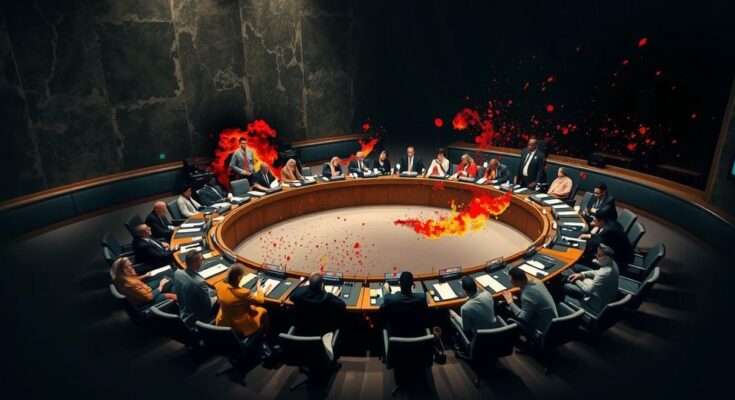The war in Sudan significantly affects regional stability, particularly in Abyei, resulting in humanitarian crises and tensions. The situation worsened after the April 2023 conflict, which disrupted oil production and aggravated resource scarcity in South Sudan. UN peacekeepers are working to mediate communal conflicts and provide aid, while political dialogue remains stalled, necessitating urgent international support.
The ongoing conflict in Sudan is significantly impacting regional stability, particularly in the contested Abyei area, as emphasized by UN officials. With its rich oil resources, Abyei lies on the border between Sudan and South Sudan, and both nations lay claim to it. The brutal power struggle which erupted in Sudan last April has led to disruptions in oil production and an influx of refugees, straining South Sudan’s already limited resources and leading to critical shortages of clean water, food, and healthcare. The United Nations has long been involved in Abyei, having authorized a peacekeeping force in June 2011, just prior to South Sudan’s independence. Recently, the Assistant Secretary-General for Africa, Martha Pobee, noted the alarming rise in arms proliferation and tensions in the area, underscored by the incursion of Rapid Support Forces (RSF) into Abyei, which has been associated with looting and violence. The ongoing drought and severe weather have further exacerbated the humanitarian crisis, displacing thousands and damaging essential infrastructure. In light of these challenges, the UN Interim Security Force for Abyei (UNISFA) is actively working to mediate communal tensions through dialogue and conferences aimed at fostering peace among various groups, especially involving women and youth. Nevertheless, the relationship between the communities remains precarious, with sporadic violence observed, often interrupted by the rainy season. In addition to addressing communal conflicts, UNISFA is tasked with facilitating the delivery of much-needed aid, providing health services and nutrition to those in need. However, the effectiveness of these efforts is hindered by political stalemates regarding the final status of Abyei, as talks between Sudan and South Sudan progress at a slow rate, with significant meetings last occurring in 2017 and January 2023. There is a pressing call from UNISFA for additional security support in the form of UN police forces, as emphasized by Ms. Pobee, to ensure stability in the region.
The conflict in Sudan has been marked by a violent power struggle between rival military factions since April 2023. This ongoing violence has led to massive humanitarian challenges within Sudan and has had spillover effects in adjacent regions such as Abyei—an area rich in natural resources that has long been a point of contention between Sudan and South Sudan. The situation highlights the complex interplay between armed conflicts, resource allocation, and humanitarian crises.
In summary, the war in Sudan presents significant security, humanitarian, and economic challenges not only for Sudan and South Sudan but particularly for the disputed Abyei region. The escalation of violence, proliferation of arms, and increased refugee influx underscore the urgent need for political dialogue and additional support from the international community to stabilize the area and ensure the delivery of vital assistance. The UN’s ongoing efforts in fostering intercommunal dialogue and providing aid are critical to mitigating the crisis and working toward a sustainable peace.
Original Source: news.un.org




